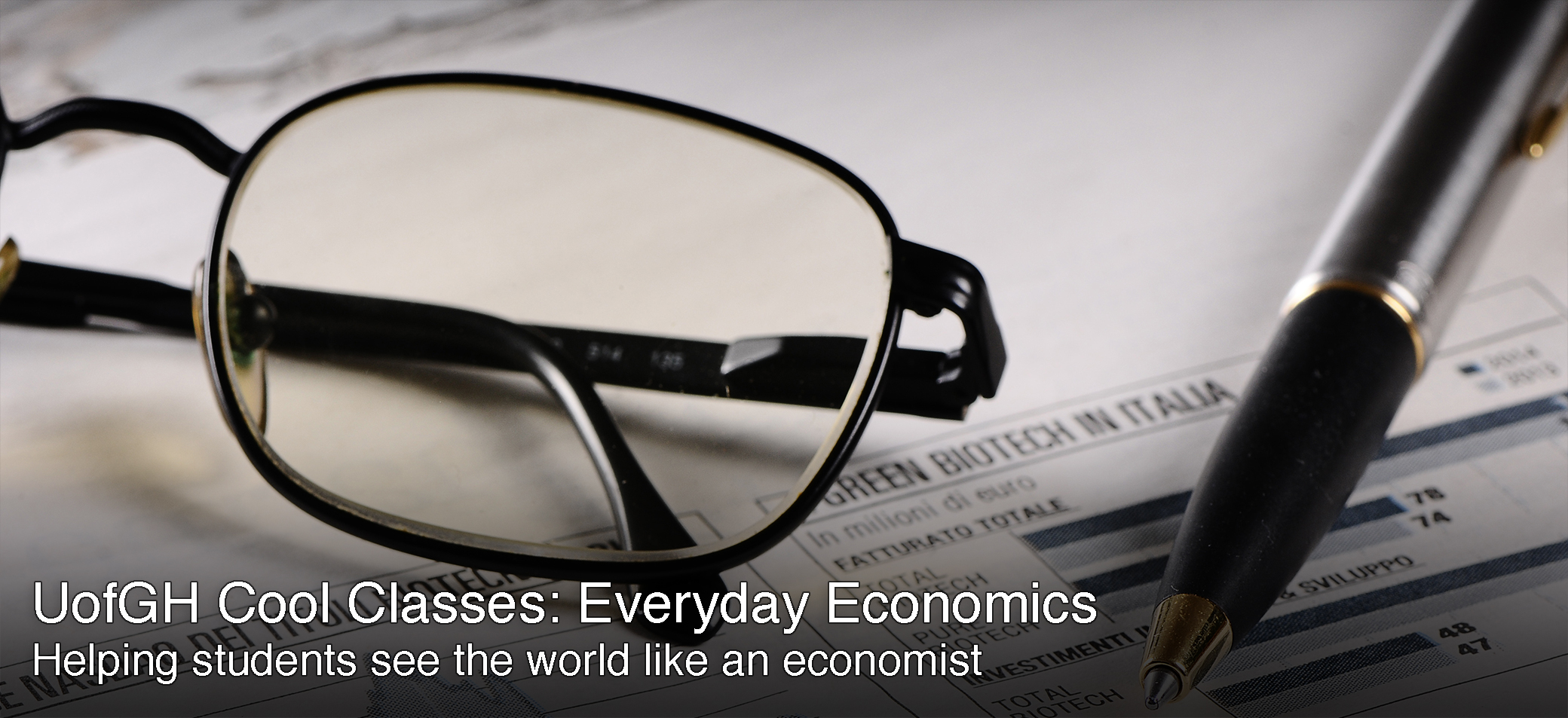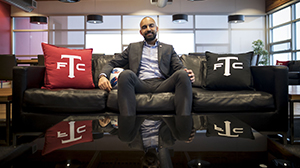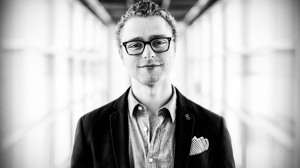- Future Students
- Current Students
- Faculty
- Staff
- Alumni
- Others
UofGH Cool Classes: Everyday Economics
Why is the course interesting?
Simply put, Dr. George Bragues’ “Everyday Economics” Electives course explores essentially all elements of human existence from the point of view of an economist.
“It’s a unique way of approaching the human condition,” explained Dr. Bragues, the University of Guelph-Humber’s Assistant Vice-Provost and Program Head of Business. “Typically, social interactions are studied using psychological or sociological methods. This gives you a whole new standpoint from which to view things.”
As Dr. Bragues explains, economists instead look at the world through the point-of-view of an individual and begin with the presumption that people make decisions based on their subjective view of what will benefit them (taking into account costs, such as money, time or energy).
Through that prism, Dr. Bragues’ course examines a vast array of topics, including religion, politics and even love and relationships.
What will you learn?
Dr. Bragues wants “Everyday Economics” to be an accessible course for students from all programs and backgrounds, so he selects readings that are not academic or dry (including Steven Landsburg’s The Armchair Economist) and includes almost no math in the course.
Students can expect an introduction to the core concepts of economics, including supply and demand, incentives and utility.
From there, Dr. Bragues applies those concepts to a variety of real-world institutions and situations. For instance, the course explores the economics of work, with discussions probing how promotions are decided, why workplace discrimination exists, and the post-secondary wage premium.
A high point for the students is the examination of relationships and marriage through an economic lens. Dr. Bragues uses economic theories to explain why monogamy is the norm in our society rather than polygamy, why household labour was divided differently between men and women, and all the various impacts of the liberalization of divorce laws.
“We refer to marriage as an ‘experience good,’ which is when you don’t know what you’re going to get until after you’ve experienced it,” Dr. Bragues explained. “We look at why people are having fewer children than before. We also look at divorce, or as I refer to it: exit costs.”
What will you take away from the course?
Ultimately, Dr. Bragues hopes the course shifts – or at least challenges – his students’ perspectives.
“Everything looks very different afterward,” Dr. Bragues said. “If, for example, a person devotes his life to crime, most people would say that it was the way that person was brought up, or something bad happened to him in his upbringing. Whereas an economist would say that person has certain goals, they evaluated all the alternatives given their situation, they have high levels of risk tolerance, so they’re willing to take the chance of getting caught.
“That’s a whole different worldview. It can be a very jarring worldview, because suddenly we can’t simply attribute behaviour we don’t like to bad social influences or a psychological issue.
“That’s a little bit difficult for students to wrap their heads around. There’s a lot more rationality in human life than meets the eye.”








